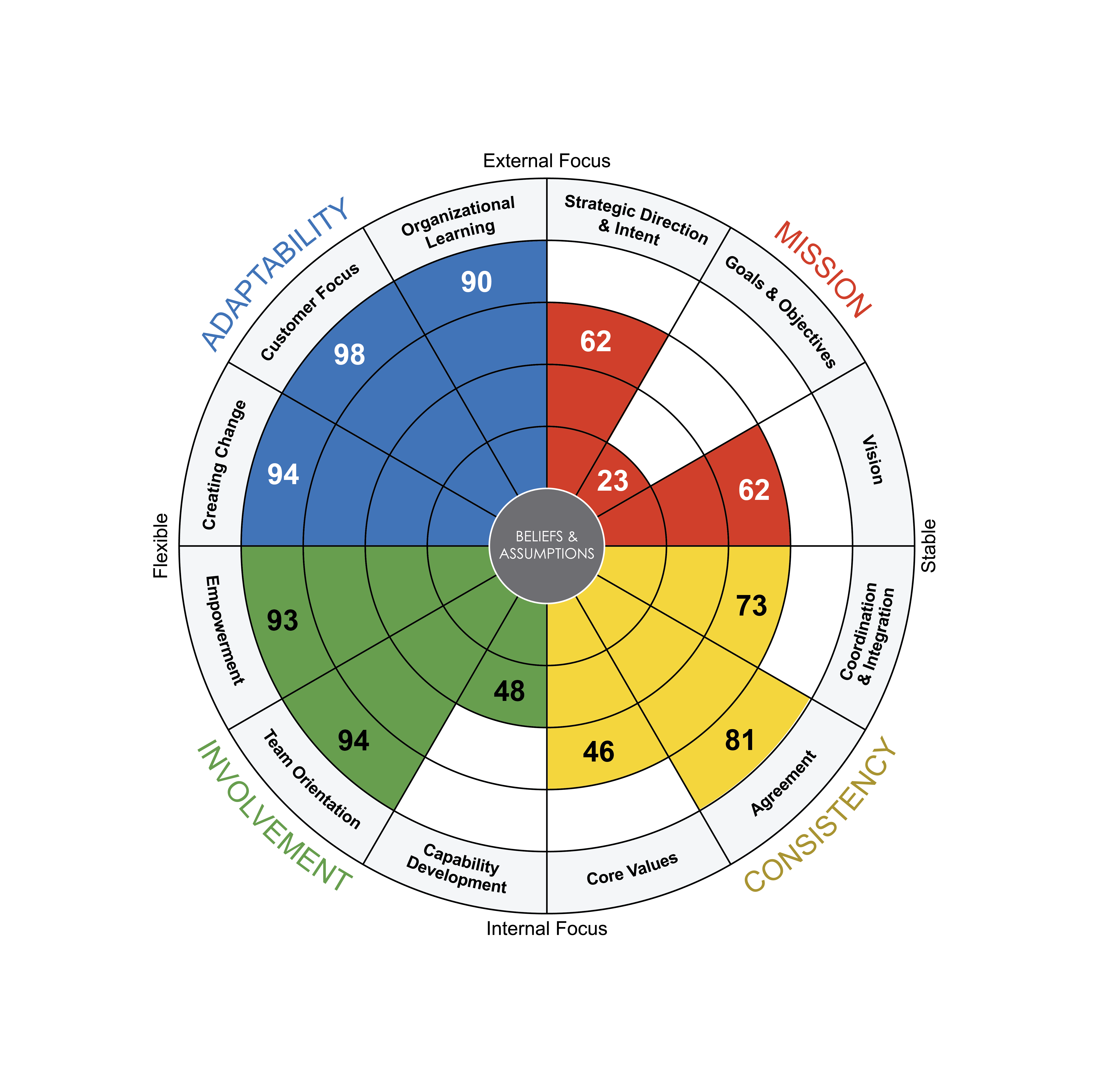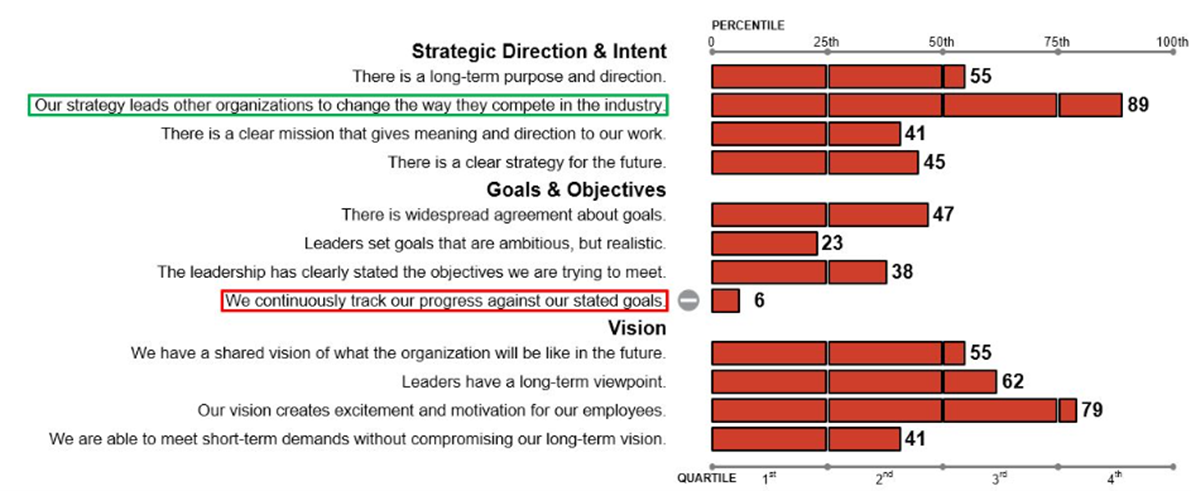
Denison Consulting Partner Case Study:
Assessing the Organizational Culture of a Croatian Start-Up as Preparation for Growth & Market Conquest
Getting Ready for Growth
In preparation for expansion into new markets and the corresponding growth in number of employees, the company recognized the need to assess its culture and establish a baseline of data before the expansion efforts began. The goal was to ensure a strong, effective, recognizable culture that kept the spirit that had made the company successful while creating space to align with future strategic goals. The owners wanted to be intentional with their culture to avoid the common trap of culture evolving independently and risking disconnect from the company strategy.
Approach
In order to address these challenges, the company reached out to one of their trusted partners, Razum. In cooperation with Denison Consulting, the team at Razum then worked with the client to implement the Denison Model Assessment which connects organizational culture with measurable performance data, analyzing four key areas of success:
- Business purpose – clearly defining the strategic direction of the organization.
- Consistency in work – stability and coordination within the organization.
- Employee involvement – encouraging motivation and a sense of belonging.
Adaptability to market demands – the ability to react quickly to changes. The project itself involved several steps and phases. At the outset, the priority was to gain a deep understanding of the organization’s current culture and business landscape. This involved in-depth discussions with owners and key stakeholders to explore their goals, values, challenges, and plans, ensuring a strong foundation for meaningful insights and strategic alignment.
Simultaneously, the Razum and Denison teams prepared the Denison Model Assessment to evaluate the effectiveness of the company’s organizational culture. This assessment provided clear, data-driven insights into the company’s strengths and weaknesses by benchmarking key cultural traits against a global standard, offering a precise understanding of areas for improvement and competitive advantage.
Analyzing the results is one of the most insightful stages, as it allows Denison and our partners to pinpoint the specific areas that need attention—tailored to each company’s unique stage of development. The most critical aspect of our work is translating these insights into concrete improvements with a strategic action plan. Denison works closely with partners to ensure that recommendations align with organizational resources and long-term goals, driving meaningful cultural transformation that leads to lasting impact.
Denison Model Assessment Results
In this case, the assessment revealed strengths in market adaptability and employee engagement, while opportunities for growth lay in clarifying goals, employee development, and strengthening values. These findings are common for start-ups, where innovation and enthusiasm drive early success. However, for rapid growth and expansion, establishing clear goals and structured processes becomes essential.

Denison Model Assessment – Key Insights:
- Relatively good understanding of the vision but lacking concrete goals and strategies to achieve it.
- Employee development – the need to strengthen educational programs and career development, especially to retain current talented employees.
- Existing awareness of shared values but missing a clear definition and integration into daily
work and processes.
Example of detailed company results on the need for specific goals:

Recommendations
Based on analysis and feedback from the Denison Model Assessment, the Razum team recommended the following actions:
- Clearly defining goals and KPIs:
- Develop a set of KPIs linked to strategic objectives.
- Introduce OKR methodology so that employees have clearly defined goals at the team and individual levels.
- Employee development:
- Create career development plans and provide regular feedback.
- Introduce a system of 1-on-1 meetings between managers and employees.
- Values management:
- Define organizational values by involving all employees.
- Incorporate organizational values into hiring and onboarding processes.
- Ensure the adoption and integration of values through a reward system, the application of values in everyday work, and regular education of employees on the importance of values.
- Improving communication:
- Develop clear communication channels so that strategic goals and changes are consistently communicated at all levels of the organization.
- Strengthening managerial competencies:
- Introduce emotional intelligence as a foundation for leading teams.
- Provide coaching programs for managers.
Razum collaborated closely with management to develop detailed recommendations, outlining specific steps, assigned responsibilities, and clear implementation deadlines.
Conclusion
The Denison Model Assessment revealed that while the company excels in flexibility, teamwork, and innovation, it lacks key processes for goal clarity, employee development, and strategic vision execution—critical elements for scaling beyond the startup phase.
By implementing the recommendations that came out of the assessment, the organization began strengthening its culture, increasing employee engagement, and ensuring alignment at all levels.
At Denison Consulting, we work closely with our partners like Razum and have a commitment to ongoing support. We go beyond the initial assessment, guiding and motivating clients through every step of the implementation process.
